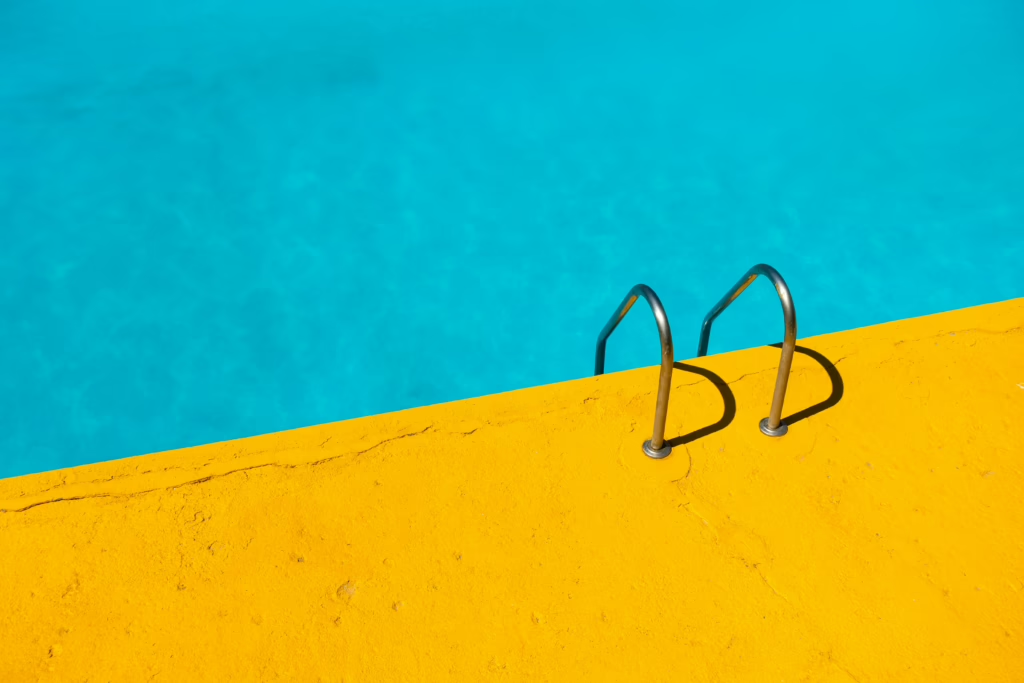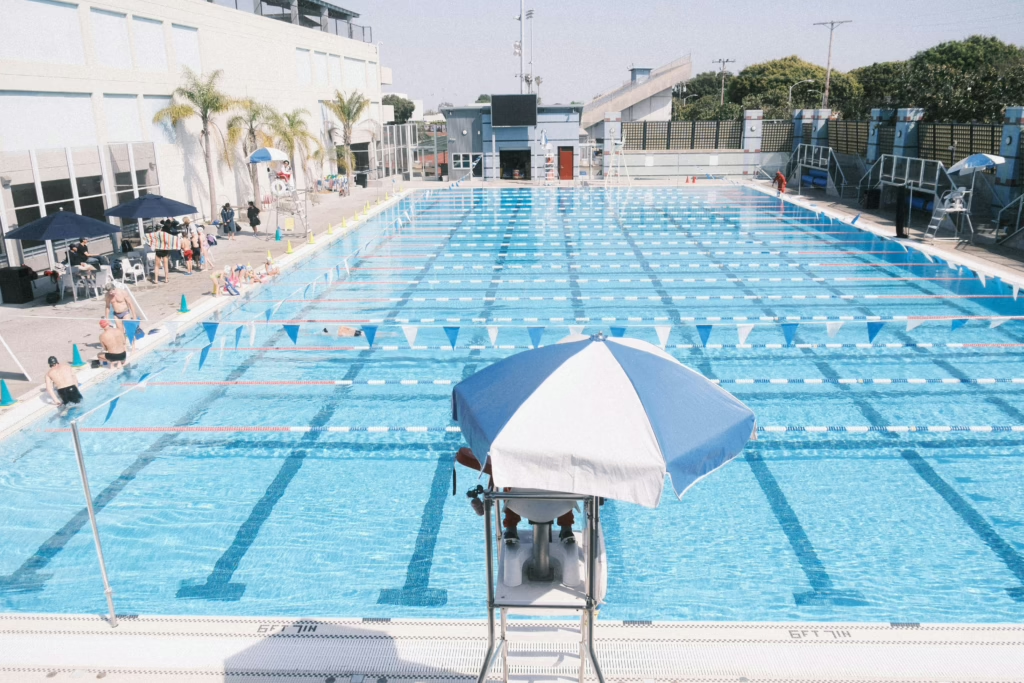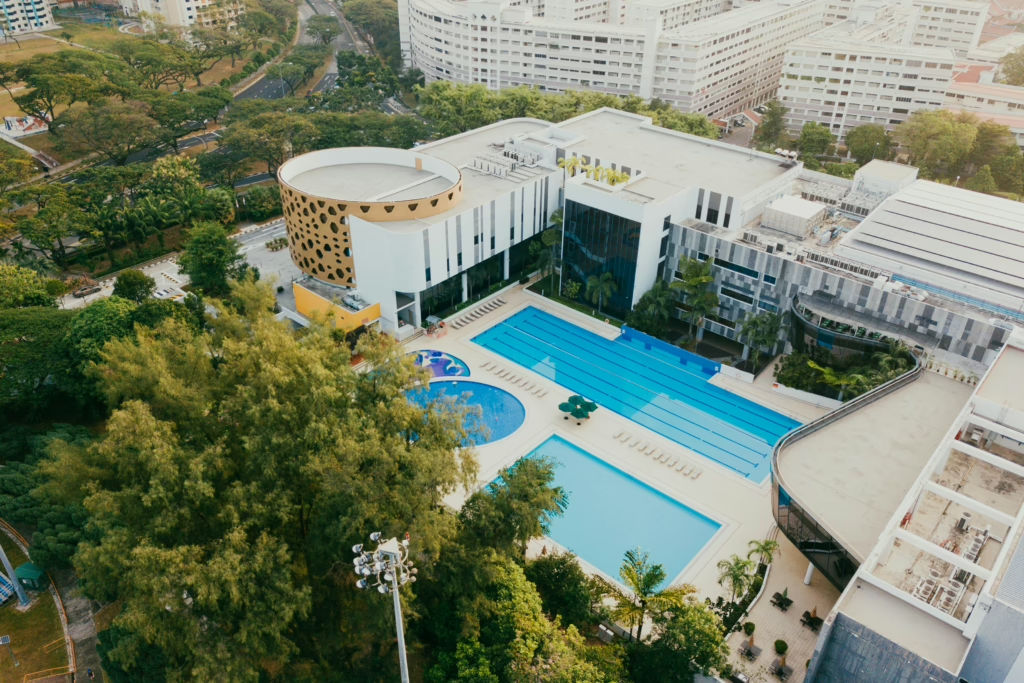A pool filter is the unsung hero of your pool system, working tirelessly to keep your water clean, clear, and safe for swimming. Without a properly functioning filter, debris, contaminants, and bacteria can build up quickly, making your pool unsafe and unappealing. Selecting the right pool filter for your specific needs is essential to maintaining optimal water quality and maximizing the efficiency of your pool system.
Suppose you’re looking for pool filter and pump installation near me. In that case, this guide will walk you through the key factors to consider when choosing a pool filter, including the types available, efficiency, and professional recommendations.
Understanding Different Filter Types
Not all pool filters are created equal. Each type has unique features, advantages, and maintenance requirements, making it essential to understand their differences before deciding.
Sand Filters
Sand filters are one of the most common and cost-effective options. They push water through a bed of specially graded sand, which traps dirt and debris.
How They Work
Sand filters remove particles as small as 20 microns, with the sand acting as a barrier. Over time, the sand becomes clogged with debris, requiring periodic backwashing to flush out contaminants.
Pros and Cons
Sand filters are durable, affordable, and easy to maintain, making them popular for residential pools. However, they are less effective at capturing very fine particles than other filters, which may result in slightly cloudy water. Additionally, backwashing wastes water, which can be considered in areas prone to drought.
Best Applications
Sand filters are ideal for pools with moderate usage and those looking for an economical, low-maintenance option.
Cartridge Filters
Cartridge filters offer superior filtration and energy efficiency, making them an excellent choice for many pool owners.
How They Work
Cartridge filters use pleated fabric to trap particles as small as 10 microns. Water passes through the fabric, leaving debris behind. Cleaning involves removing the cartridge and rinsing it with a hose, a more straightforward process that uses less water than backwashing.
Advantages and Maintenance
These filters provide better water clarity than sand filters and are highly energy-efficient since they don’t require as much pressure to operate. Maintenance involves periodic cleaning and replacing cartridges every 2–3 years, depending on usage.
Best Applications
Cartridge filters are ideal for residential pools that are frequently used and for those seeking a balance between performance and maintenance.
DE Filters
Diatomaceous Earth (DE) filters are the most advanced and effective filtration systems.
How They Work
DE filters coat grids inside with a fine powder made from crushed fossilized diatoms. Water passes through the powder, trapping particles as small as 2 microns.
High-Performance Filtration
These filters deliver the clearest water, making them the go-to choice for pools that require top-tier cleanliness, such as commercial or high-traffic residential pools.
Special Considerations
DE filters require more maintenance, including regular backwashing and reapplying DE powder. They are also the most expensive option, both in terms of upfront costs and ongoing maintenance.
Best Applications
DE filters are perfect for those who prioritize water clarity and don’t mind the additional upkeep.
Factors to Consider When Choosing a Filter
The right pool filter depends on several factors unique to your pool and usage habits.
Pool Size and Volume
The size of your pool dictates the filter’s flow rate and capacity. Larger pools require filters to handle higher water volumes, ensuring proper circulation and cleanliness. Installing a filter that’s too small for your pool can overwork the system, leading to premature wear and reduced efficiency.
Usage Frequency and Type
Pools that are frequently used, such as those in San Diego’s sunny climate, are exposed to more debris, oils, and contaminants. Residential pools with moderate usage can often get by with cartridge filters, while commercial or high-traffic pools may need the advanced filtration provided by DE filters.
Budget Considerations
Cost plays a significant role in choosing a filter. Sand filters are the most affordable upfront and have minimal maintenance costs, making them a budget-friendly option. Cartridge filters are slightly more expensive initially but offer savings on water and energy usage over time. DE filters, while pricier, provide unmatched water clarity, making them worth the investment for those who value performance.
Comparing Efficiency and Longevity
Energy efficiency and lifespan are critical considerations when choosing a pool filter, as they directly impact long-term costs.
Energy Efficiency
Cartridge filters are the most energy-efficient option, requiring lower operating pressure. This reduces the strain on your pump, leading to lower energy bills. Sand filters are less efficient due to their higher operating pressure, while DE filters fall in the middle, offering excellent performance at the cost of slightly higher energy usage.
Lifespan and Durability
The lifespan of a filter depends on its type and maintenance. Sand filters can last up to 7 years with regular backwashing and sand replacement. Cartridge filters typically last 3–5 years, depending on how well they are maintained. DE filters, while high-performing, often need their grids replaced every 5–10 years. Proper care and professional maintenance can extend the life of any filter type.
Professional Recommendations
Choosing the best pool filter can be challenging, especially considering many factors. Consulting a professional ensures you get a filter that matches your pool’s specific needs while avoiding common mistakes.
Why Expert Advice Matters
Professionals can assess your pool’s size, plumbing, and usage patterns to recommend the most suitable filter. They can also identify potential challenges, such as high debris levels or hard water, and suggest solutions.
Avoiding Common Mistakes
Many homeowners make the mistake of undersizing their filter or selecting one that doesn’t align with their pool’s usage. This can lead to inefficiency, frequent repairs, and reduced water quality. A professional installer ensures your filter is correctly sized and integrated into your pool system.
FAQs: Pool Filter & Pump Installation Near Me
1. How much does pool filter installation cost near me?
The cost of pool filter installation depends on factors such as the type of filter, your pool’s size, and any additional plumbing work required. On average, installation costs range from $800 to $2,500. Sand filters are the most affordable, while cartridge and DE filters may cost more due to their advanced filtration capabilities. Consulting a local professional will give you a clearer idea of what to expect.
2. How do I choose the right pool filter for my pool?
Selecting the right pool filter involves considering your pool’s size, how often it’s used, and your maintenance preferences. Sand filters are cost-effective and require minimal upkeep, but they may not effectively capture fine debris. Cartridge filters offer better filtration with less water waste during cleaning, while DE filters provide the highest level of water clarity but need more maintenance. A professional evaluation can help match your pool with the ideal filter type.
3. When should I replace my pool filter?
Pool filters need replacement after years of regular use, but the timeline depends on the filter type. Sand filters usually last 5–7 years, cartridge filters 3–5 years, and DE filters up to 10 years. Signs that it’s time to replace your filter include cloudy water, reduced circulation, or frequent breakdowns. Proper maintenance can extend the lifespan of your filter, but eventually, wear and tear will necessitate an upgrade.
4. What are the benefits of upgrading my pool filter?
Upgrading your pool filter can improve water clarity, reduce maintenance time, and increase energy efficiency. Modern filters are often designed to work more effectively with energy-efficient pumps, reducing the strain on your pool’s system and lowering operational costs. An upgraded filter protects equipment like your pump by ensuring proper water flow and preventing debris buildup.
5. How long does it take to install a new pool filter?
Installing a new pool filter typically takes two to four hours, depending on the complexity of your pool’s plumbing and the type of filter installed. Professionals will connect the filter to the system, test for proper operation, and ensure no leaks or flow issues.
6. How much does a pool pump installation cost near me?
The cost of installing a pool pump varies depending on the pump type and pool size. On average, installation costs range from $500 to $1,800. Variable-speed pumps, which are more energy-efficient, often cost more upfront but provide significant savings over time. Additional factors, such as plumbing modifications, can influence the total cost.
7. How do I choose the right pool pump for my pool?
The best pool pump depends on size, water volume, and energy efficiency goals. Pumps must match your pool filter’s flow rate to ensure proper circulation. Single-speed pumps are more affordable initially but are less energy-efficient. While more expensive, variable-speed pumps provide better performance and lower utility costs in the long run.
8. Should I upgrade to a variable-speed pool pump?
Upgrading to a variable-speed pump is a wise investment for most pool owners. These pumps are more energy-efficient, quieter, and allow customizable flow rates. They reduce electricity consumption compared to single-speed pumps, leading to long-term savings on utility bills. Additionally, many areas have energy regulations that make variable-speed pumps a preferred option for compliance.
9. How long should a pool pump last?
With proper maintenance, a pool pump should last between eight and twelve years. Regular care, such as cleaning the filter and monitoring water levels, can help extend its lifespan. If your pump becomes noisy, inefficient, or requires frequent repairs, it may be time to replace it to avoid disruptions to your pool system.
10. What are the benefits of professional pool pump installation?
Professional installation ensures that your pool pump is sized correctly, securely connected, and calibrated for optimal performance. This reduces the risk of leaks, inefficiencies, and premature wear on your pool system. Additionally, professional installations often come with warranties, offering added protection and peace of mind. By choosing an expert, you can avoid costly mistakes and ensure your pump operates smoothly from day one.
For reliable pool filter and pump installation near me, trust PoolLogic San Diego. Contact us today for expert advice and professional installation tailored to your pool’s needs!
Final Thoughts
Choosing the right pool filter is essential for maintaining water clarity, system efficiency, and long-term cost savings. By understanding the differences between sand, cartridge, and DE filters and considering factors like pool size and usage, you can make an informed decision that meets your needs.
For expert pool filter and pump installation near me, trust PoolLogic San Diego. Contact us today for personalized recommendations and professional installation services to keep your pool in perfect condition year-round!



